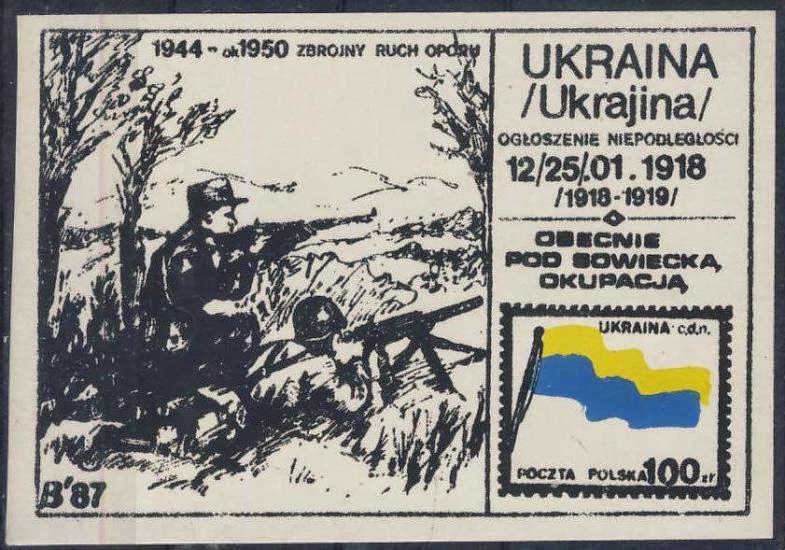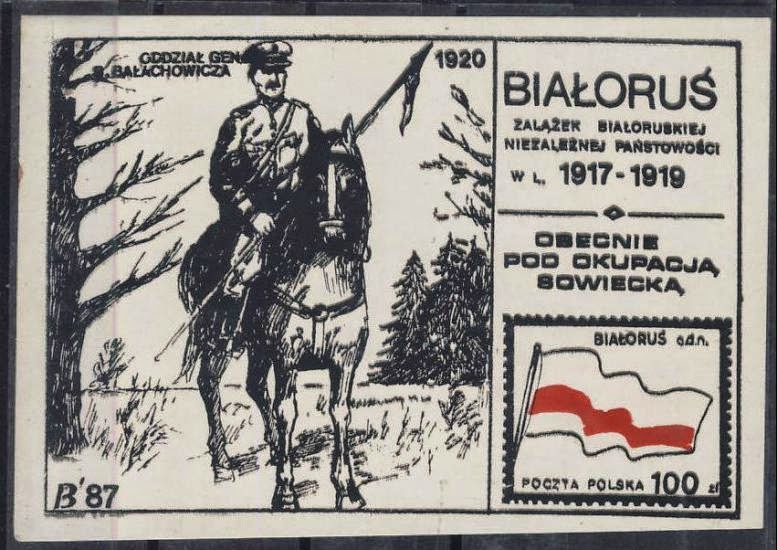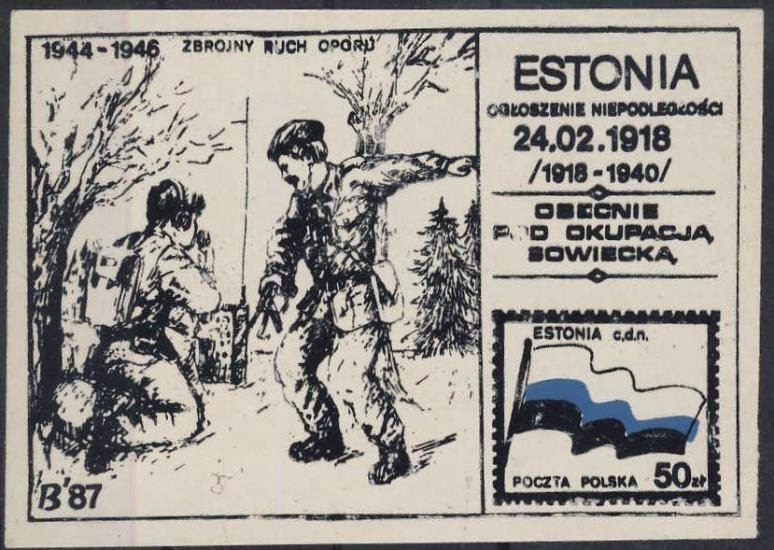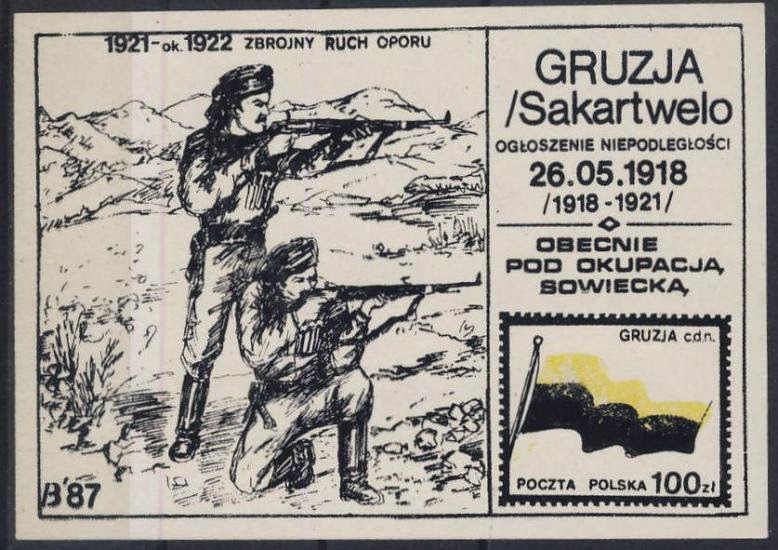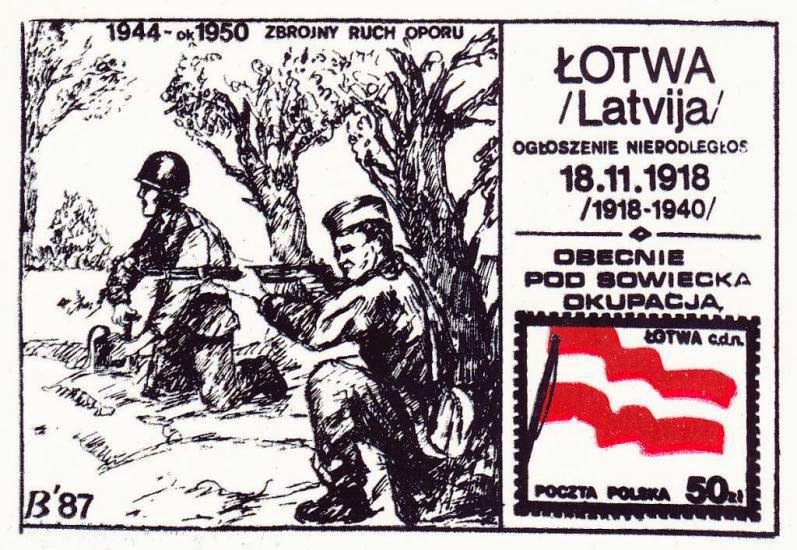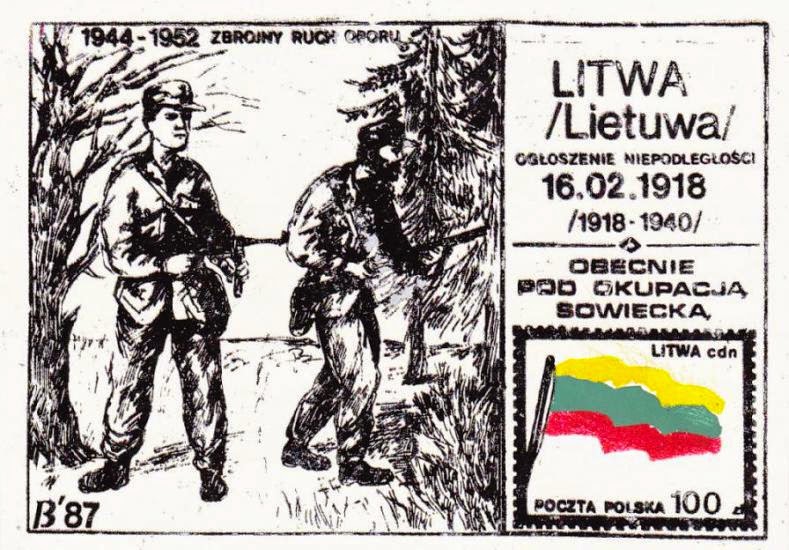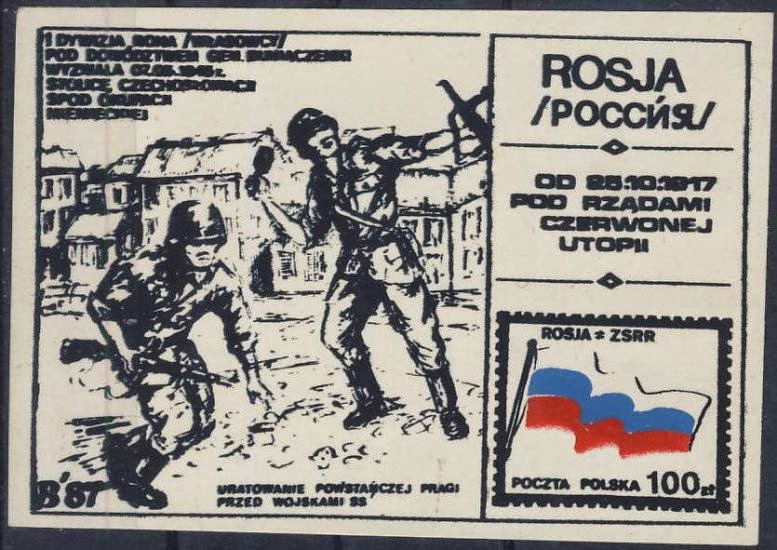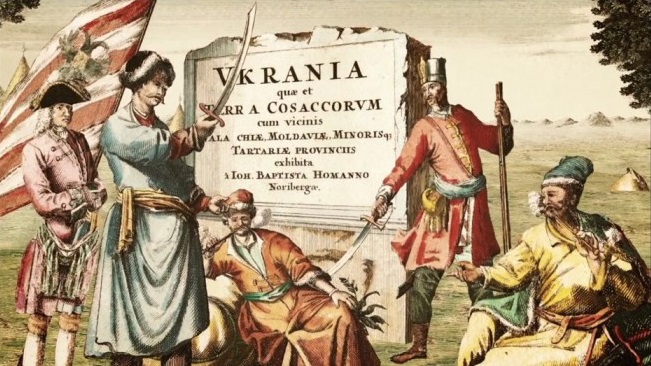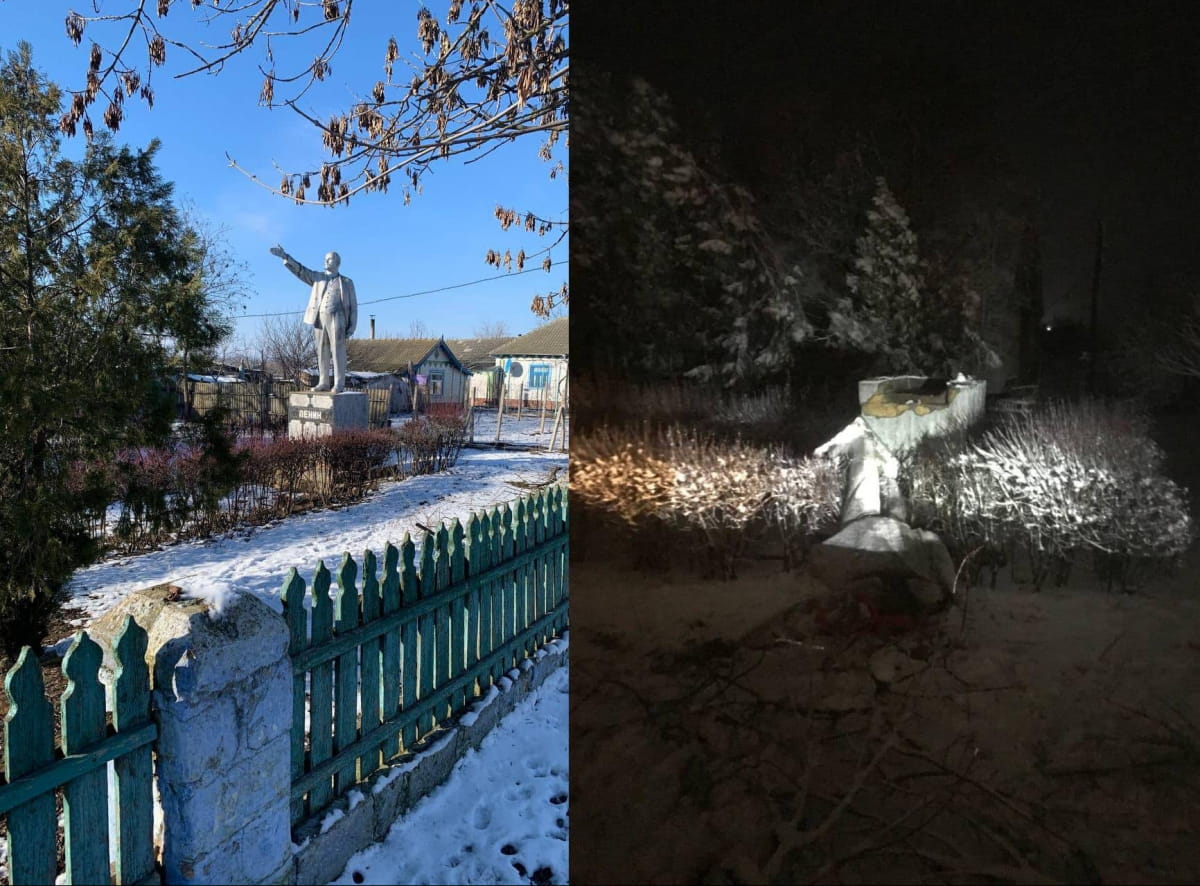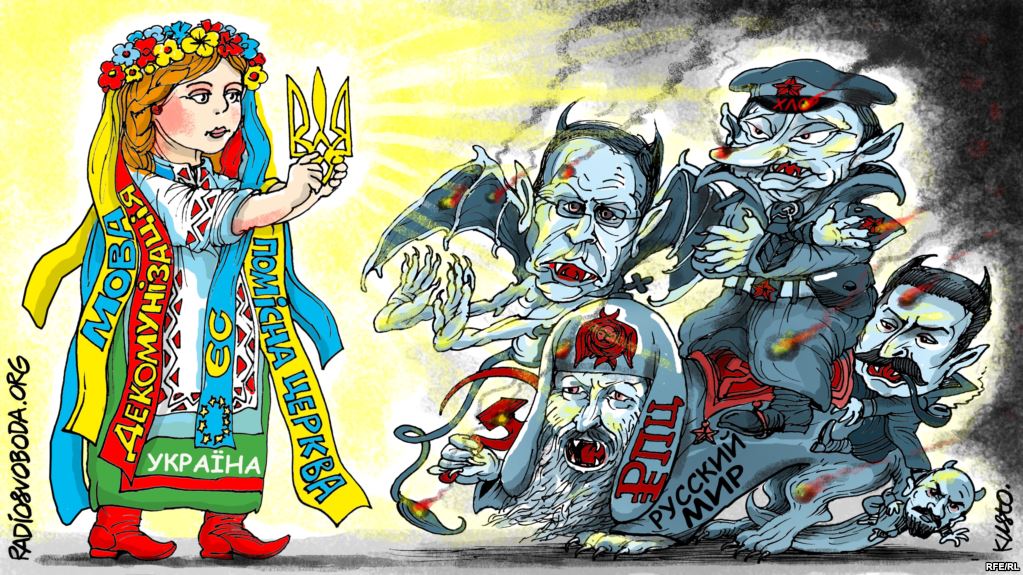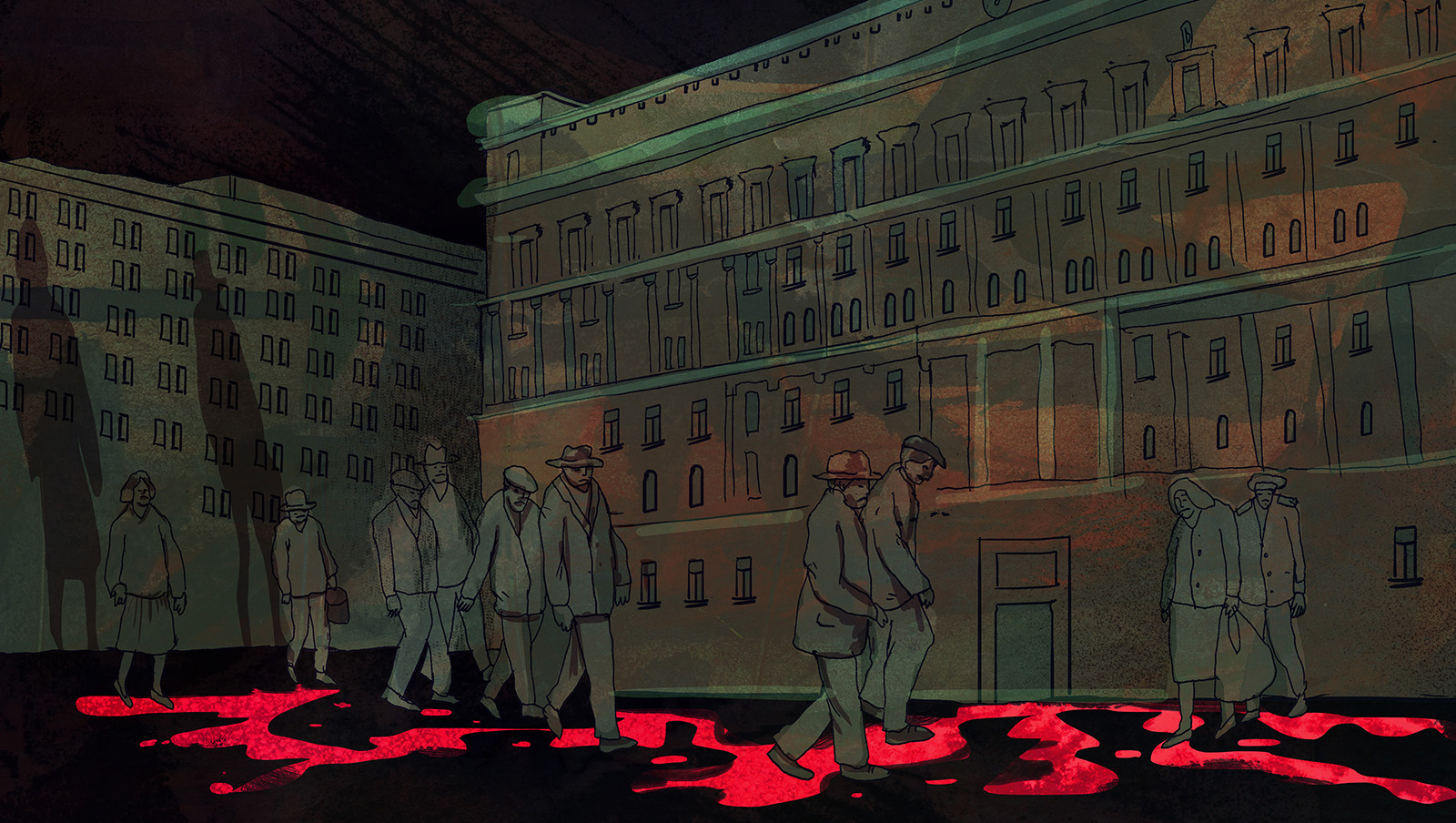Since communism collapsed in Eastern Europe in 1989 and in the Soviet space in 1991, those countries which recognized the communist period as one of foreign occupation have been far more successful in breaking with the past than have those who viewed the Soviet / communist period as part of their national histories.
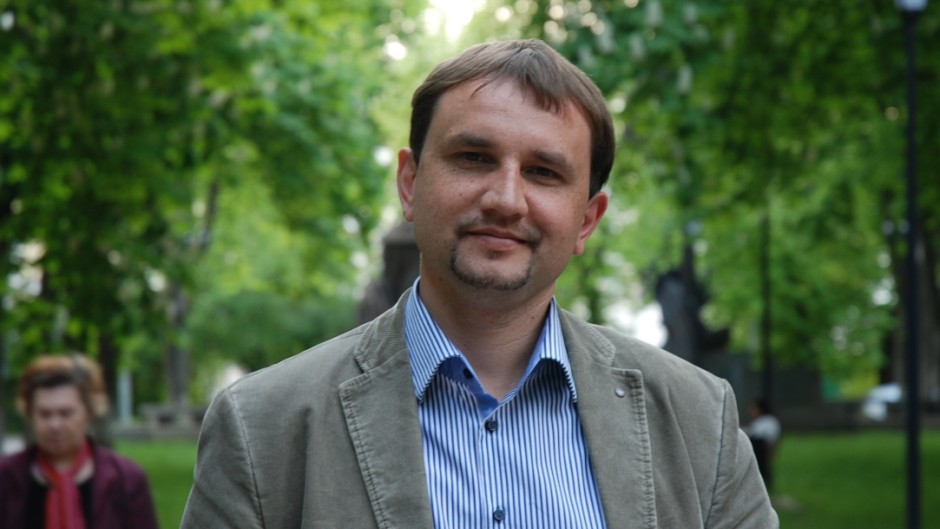
(Image: Hannah Beitzer)
The countries which had been members of the Warsaw Pact in almost every case viewed their communist periods as an occupation by the Soviet Union, as did Estonia, Latvia and Lithuania, whom the Soviets had viewed as legitimately part of the USSR but whom the citizens of the three and most Western governments did not.
(There were some intermediate cases, like Azerbaijan, which viewed itself as the continuation of the Azerbaijani Democratic Republic suppressed by Soviet troops but did not explicitly label the Soviet period as an occupation. Over time, several other post-Soviet states have moved in that direction.)
A major reason that some in these countries are thinking about declaring the Soviet period an occupation is that they can see that those countries which have done so have found it far easier to dispense with the communist past. Few, despite Russian obsessions, have expected that they would ever receive compensation.
Now, this issue has been joined in Ukraine. Volodymyr Vyatrovych
, the head of the Ukrainian Institute of National Memory, has declared that Ukraine must recognize the period it was within the USSR as “’an occupation’” by the Soviet regime in Moscow.
Not surprisingly, his proposal has sparked outrage in Moscow and among some in Ukraine who say it is “fake” history and as a prelude to Ukraine making demands for reparations. (See sputniknewslv.com, stockinfocus.ru
and svpressa.ru.)
And also not surprisingly, Vyatrovych’s proposal almost certainly will be opposed by other countries and by many in Ukraine as a step that would only make resolving issues arising out of the Russian Federation’s Anschluss of Crimea and continuing intervention in the Donbas more difficult.
But the historian’s idea contains within it more than a kernel of truth; and consequently, even if it is not adopted officially as it is unlikely to be, it will inform the thinking of ever more Ukrainians and may make it easier for them to press for those steps necessary to escape the system that Moscow in fact did impose upon their ancestors.
Read More:
- Soviet chekists weren’t the professionals Putin wants Russians to think they were, new book says
- Mass grave of Kozak Volyn Division of UNR Army found in Vinnytsia Oblast
- Ukrainians suffered three terror famines under the Soviets not just one
- The Ukrainian Revolution of 1917 and why it matters for historians of the Russian revolution(s)
- The Bolbochan raid: How Ukrainian troops captured Crimea 100 years ago
- A short history of the Ukrainian greeting “Slava Ukrayini!”
- Series of events in London will mark centenary of Ukrainian Revolution of 1917
- A taste of Ukraine’s poetic Renaissance executed by Stalin
- Many Ukrainians remain “Soviet people” decades after collapse of the USSR. How to eliminate “Bolshevism of the mind”?
- The Ukrainian who set himself on fire protesting the Soviet invasion of Czechoslovakia
- Former UPA liason officer receives copy of her criminal case as recorded by Soviet NKVD
- 70th anniversary of Soviet Operation Zapad
- Old UPA docs reveal revolutionary activities in Soviet Ukraine in 1950s
- Putin regime now seizing and destroying archives to whitewash the Soviet past

